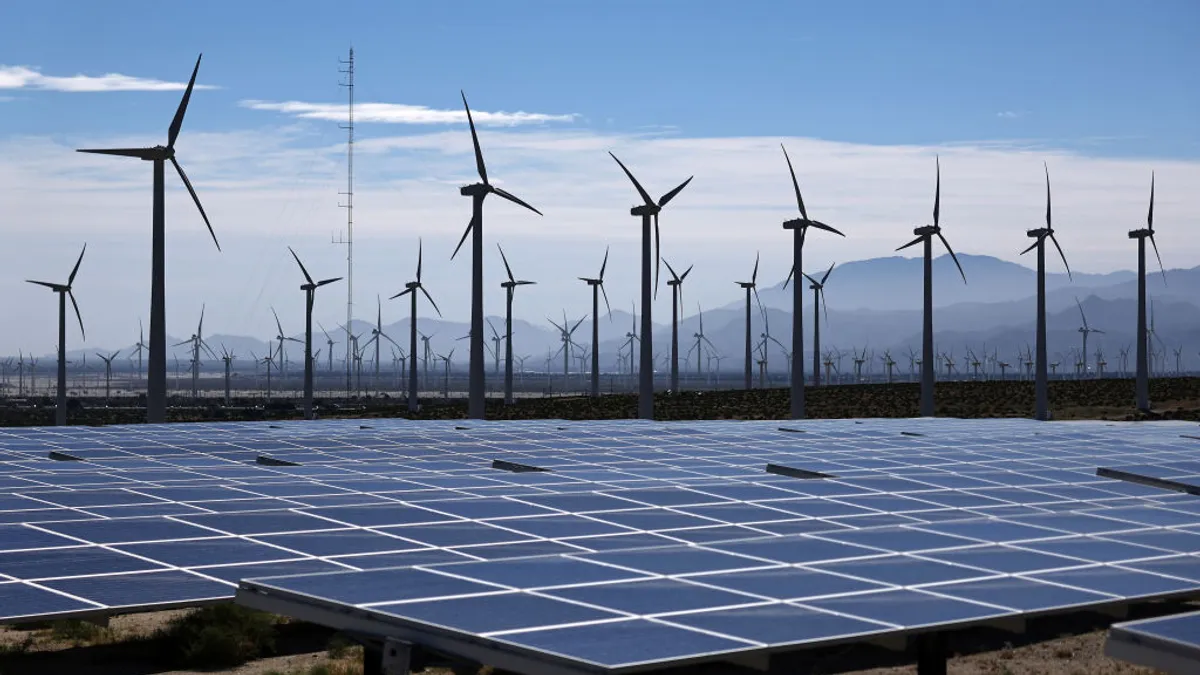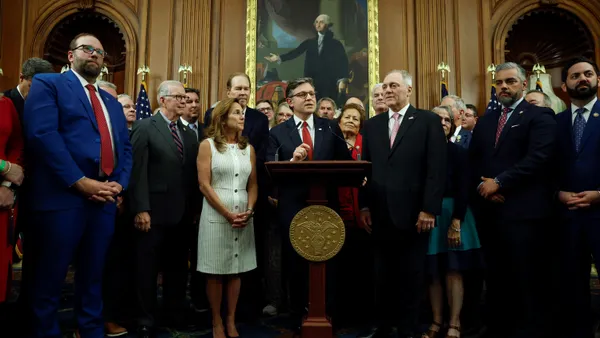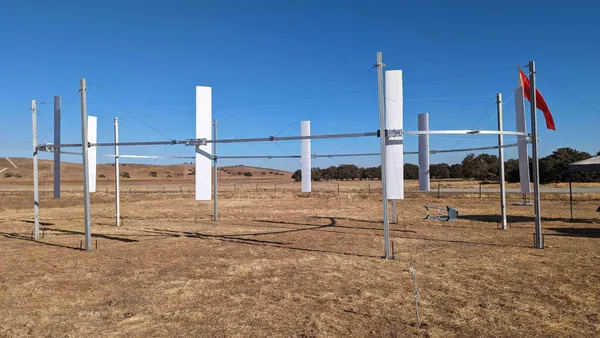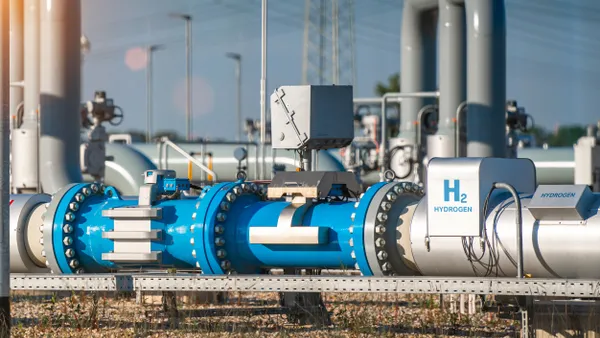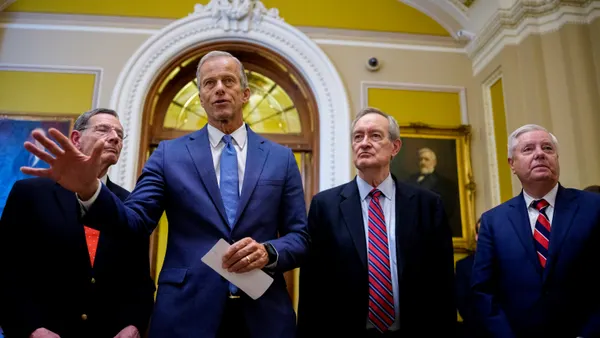Dive Brief:
- The Solar Energy Industries Association (SEIA) rallied its members on Friday to reach out to their federal legislators in support of policy that will help the sector weather the novel coronavirus pandemic and global economic downturn.
- The industry supports the extension of renewable tax credits and a bill that would enable low-cost loans for small businesses, including many SEIA members. The loans component, which the House of Representatives passed on March 6, is crucial to the industry association because of its smaller members, Shaun Garrison, SEIA director of congressional affairs, said.
- Support for the solar industry is also growing on the state level, as public utility commissions and legislatures are crafting ways to ease solar installation and permitting in the residential sector, SEIA VP of state affairs Sean Gallagher said, as electric power demand is expected to shift in the near term toward the residential sector. SEIA is aggregating examples of different remote solar installation solutions, to minimize proximity between installation crews and homeowners.
Dive Insight:
The solar sector expected to continue its rapid growth in 2020, but pandemic conditions are driving down demand. SEIA anticipates its members working in the residential sector to be hit particularly hard as customer demand is expected to decrease temporarily.
Some utilities are anticipating similar trends, for a drop in interconnection requests for behind-the-meter devices. Exelon subsidiary ComEd had been consistently beating annual records for solar interconnection, but CEO Joe Dominguez told Utility Dive last week he anticipates that growth might slow with the spread of the pandemic as homeowners prioritize other expenditures.
Similar delays could come from the commercial and industrial sector as non-essential businesses and operations shift to remote work and as companies prioritize other aspects over meeting clean energy goals in their response to the novel coronavirus.
Developers are expected to move forward, particularly "as their activity doesn't require a lot of people," provided that more permitting and interconnection processes can be done remotely or online, David Littell, senior advisor for the Regulatory Assistance Project, told Utility Dive.
According to SEIA, some areas that do not currently have online pay systems or application processes for distributed solar have seen renewed interest in simplifying these processes and moving them online. New York, for instance, has shifted installation inspections to allow the solar companies to share the progress through virtual video apps or photos.
In addition to rallying its members to reach out individually, SEIA and the American Wind Energy Association wrote a joint letter to members of Congress on Wednesday asking for an extension of construction and safe harbor provisions for wind and solar projects to ensure they could still benefit from current tax credits, even with project delays, along with direct payments or refunds of solar and wind tax credits to simplify reimbursement and continue advancing current projects in the pipeline.
The renewables trade associations are pressing for an extension of the investment and production tax credits and the addition of a storage standalone investment tax credit. "Policies previously provided by Congress [should] remain available and usable despite delays in our schedules caused by the COVID-19 crisis," the letter said.
"There's a number of RFPs out right now for 2020 procurement," John Marciano, partner at Akin Gump and member of SEIA's tax and accounting advisory committee, said on an industry webinar on Friday. "My guess is they'll have to be adjusted if they're going to have teeth. Otherwise, we'll have less-than-hoped-for takers."
He added that 2020 procurement will be tenuous for projects expected online by 2021.
Last week, Tennessee Valley Authority, which serves several large tech companies that have ambitious clean energy goals, issued a request for proposal for 200 MW of renewables to be online by 2023. While there were no changes to the RFP as of Friday, the utility's COVID-19 response remains fluid, according to spokesperson Scott Brooks.






